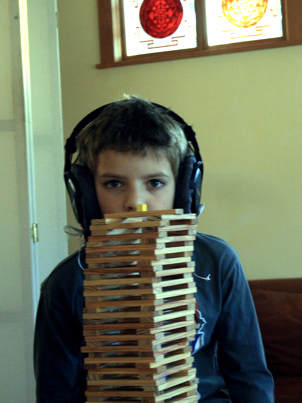Things become more problematic when there is a genetic component. Most commonly stuttering can be passed on from father to son and there may be other, secondary behaviours like involuntary movements of the hands or head. as well. Stuttering can also be a ‘by-product’ of something else. For instance when it occurs after a stroke or any other forms of brain injury.
Besides the various other forms of therapy and assistance in such cases the added benefit of Listening Training is the fact that it not only helps on a physiological level by strengthening the neural connections but it also deals with other underlying causes that we may not be aware of yet and are unable to test or even trace.
Breath control, mindfulness practises, speech therapy and Listening Training can all help.

Someone who stutters generally feels vulnerable and may even want to avoid being with people in situations where talking is called for. Seeing a therapist will not be high on the agenda.
So it may be wise to begin with Listening Training, even before starting speech therapy, or do both simultaneously. Building confidence that way might make the whole process go faster.
There are also forms of stuttering that may not so easily move out of the way. For instance when it occurs after a brain injury. Contact us to see what options there are in that case.


